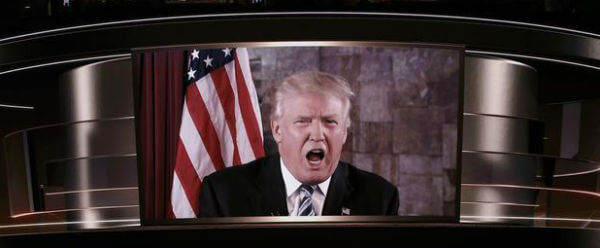
Timothy Shenk writes: [Leviathan and Its Enemies, by Samuel Francis, finished in 1995 but not discovered until after his death a decade later and published earlier this year, is] one of the most impressive books to come out of the American right in a generation – and the most frightening. It is a searching diagnosis of managerial society, written by an author looking for a strategy that could break it apart.
Like much of Francis’s writing, Leviathan and Its Enemies began with Burnham – in this case, quite literally. “This book,” Francis announced in the first sentence, “is an effort to revise and reformulate the theory of the managerial revolution as advanced by James Burnham in 1941 [in The Managerial Revolution: What Is Happening in the World].”
Francis agreed that society had been taken over by managers, but he believed the new ruling class was far more vulnerable than Burnham had realised. Not everyone had benefited from the rise of the experts – and Francis saw this unequal distribution of rewards as the managerial regime’s greatest weakness.
For reasons he never quite explained, he insisted that the cosmopolitan elite threatened the traditional values cherished by most Americans: “morality and religion, family, nation, local community, and at times racial integrity and identity”. These were sacred principles for members of a new “post-bourgeois proletariat” drawn from the working class and the lower ranks of the middle class. Lacking the skills prized by technocrats, but not far enough down the social ladder to win the attention of reformers, these white voters considered themselves victims of a coalition between the top and bottom against the middle.
According to Francis, this cohort had supplied the animating spirit of rightwing politics since the death of Franklin Roosevelt in 1945. They had supported Goldwater – but Francis regarded Goldwater’s programme, like the “movement conservatism” of the National Review, as a “quaintly bourgeois” throwback to the oligarchic politics of the 19th century, with nothing to offer the modern working man. Their tribune was not Goldwater but George Wallace, the notorious segregationist and Democratic governor of Alabama – who won five southern states as an anti-civil rights third-party candidate in the 1968 presidential election. Richard Nixon and Ronald Reagan had appealed to this group, too, but neglected their interests after taking office. Despite having elected multiple presidents, the post-bourgeois proletariat had yet to find a voice.
Yet Francis had difficulty explaining why managerial society would generate so much opposition in the first place. In Leviathan and Its Enemies, he argued that resistance to the cosmopolitan elite would be driven by “immutable elements of human nature” that “necessitate attachment to the concrete and historical roots of moral values and meaning”.
He was more candid in a speech he gave while working on the book. “What we as whites must do,” he declared, “is reassert our identity and our solidarity, and we must do so in explicitly racial terms through the articulation of a racial consciousness as whites.” Where mainstream conservatives depicted the US as a nation whose diverse population was linked by devotion to its founding principles, Francis viewed it as a racial project inextricably bound up with white rule. The managerial revolution jeopardised this racial hierarchy, and so it must be overthrown.
Francis delivered his remarks on racial consciousness at a conference organised by American Renaissance, an obscure journal devoted to promoting white nationalism. Years earlier, Francis had struck up a friendship with Jared Taylor, who went on to found the magazine with Francis’s encouragement. From their first encounter, Taylor recalled, he and Francis “understood each other immediately”.
Francis’s employers at the Washington Times were not as sympathetic. The paper fired him after his comments were released, a move that was part of his larger expulsion from the respectable right. [William J.] Buckley himself dismissed Francis as “spokesman” for a group that had “earned their exclusion from thoughtful conservative ranks”.
Yet Francis would not be so easily purged. For years he had cultivated a relationship with Pat Buchanan, a one-time Nixon protege who had become one of the country’s most recognisable conservatives thanks to his role as co-host of CNN’s popular debating programme Crossfire. In 1992, Buchanan launched a long-shot campaign against incumbent president George HW Bush that, against all expectations, garnered almost 3m votes in the primaries. While all this was going on, Buchanan was growing closer to Francis, whom he later called “perhaps the brightest and best thinker on the right”.
Francis and Buchanan were linked by their association with a breakaway faction on the right known as paleoconservatism. While mainstream conservatives had taken advantage of cushy gigs in New York and Washington, paleocons depicted themselves as spokesmen for the forgotten residents of flyover country. Francis urged Buchanan to make another run for the White House in 1996, this time as the candidate of the post-bourgeois resistance. That campaign would be based on three issues: protectionism, opposition to immigration and an “America First” foreign policy that repudiated global commitments and foreign interventions in order to focus on defending the national interest. [Continue reading…]


I will never frequent this blog again; though I was starting to take note of its liberal views but this is simply playing the race card. Repugnant.